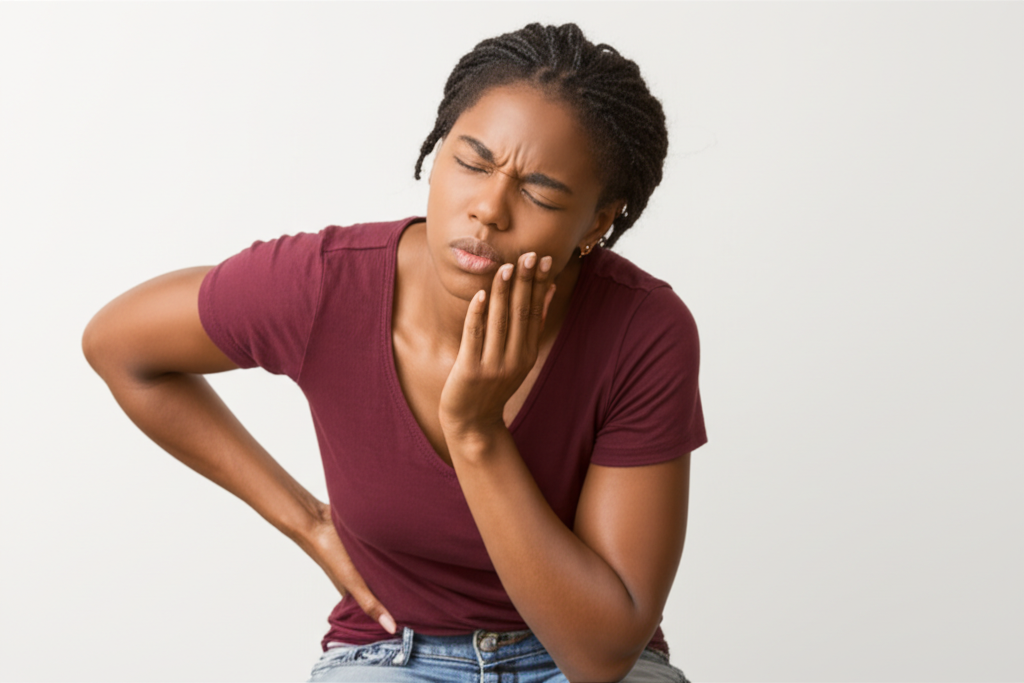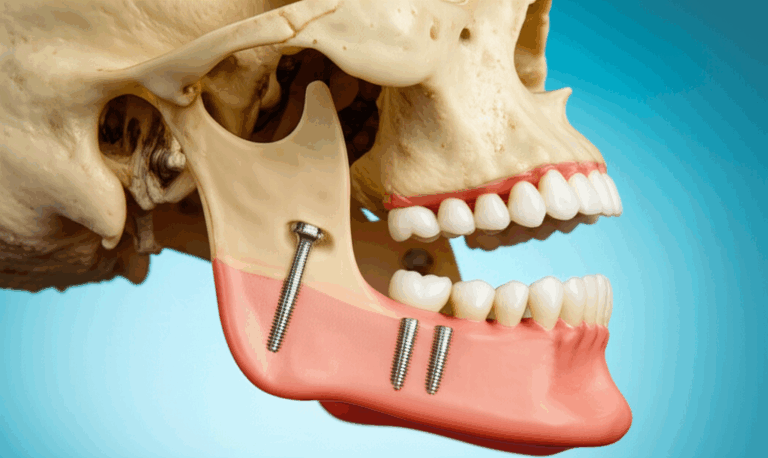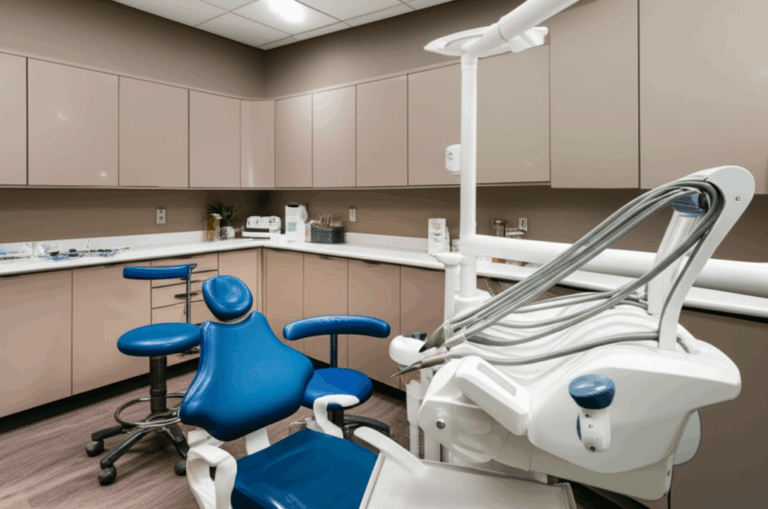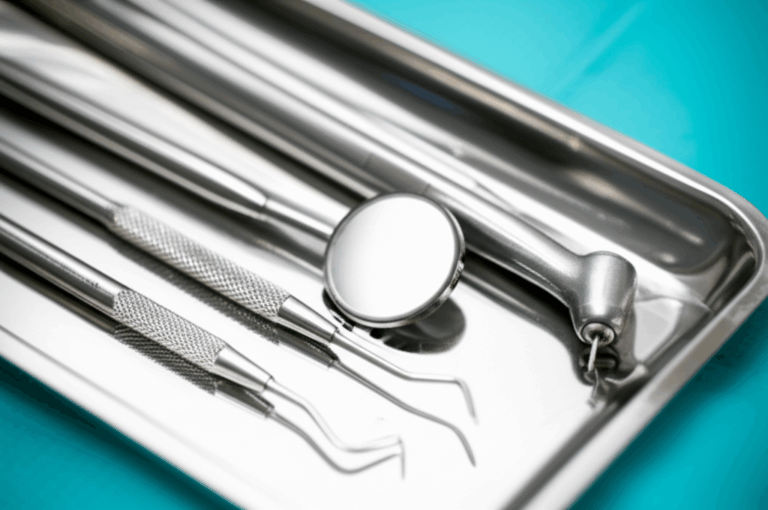
Can Dental Problems Cause Back Pain? Understanding the Surprising Connection
By someone who learned it the hard way: My journey from mouth to back pain relief
Introduction: How I Discovered the Link
Have you ever had an annoying back or neck pain that just won’t go away, no matter how much you stretch or take medicine? That was me not long ago. I went from doctor to doctor and tried lots of treatments, but my back still hurt and my neck was always stiff. I also had some mouth problems—my jaw was tight, I was grinding my teeth at night, and I got headaches now and then—but I never thought my mouth was the reason for my back pain.
That changed one day when my dentist asked me about my posture and if I had back pain. Here’s what I learned from my own experience. If you ever wonder if your mouth and your back pain are connected, you’re not alone—they really can be, and I’ll show you how this happens.
Table of Contents
- What Connects Your Mouth and Back? (And Why I Never Knew)
- How Dental Problems Can Trigger Back Pain
- Common Dental Issues That Caused My Back Pain
- Recognizing Dental-Related Back Pain: My Symptoms Checklist
- Finding Relief: What Worked For Me
- Preventing Dental Problems and Back Pain: Lessons For Anyone
- Conclusion: Why You Really Shouldn’t Ignore The Mouth-Back Connection
What Connects Your Mouth and Back? (And Why I Never Knew)
At first, teeth and your back seem totally separate. Teeth are for eating, right? Your back is for standing and moving. But after talking to more dentists and reading up, I found out your body doesn’t split these up. Muscles, nerves, and even the way you sit or stand make problems spread—if one part has trouble, other parts might too.
For example, think about your jaw and how it helps keep your head upright. If your jaw is not lined up right, your body will try to make up for it—and soon your neck and back muscles are working extra hard. I felt this myself. Every time my jaw hurt or I ground my teeth at night, my neck and back felt sore the next day.
How Dental Problems Can Trigger Back Pain
Let me show you in three main ways—each one happened to me—how dental problems can cause back or neck pain.
Posture and Jaw Position: More Than a Smile
I always thought posture was just about sitting up straight. But actually, the way your teeth fit together (your bite) and how your jaw sits make a big difference in how you hold your head and neck. My dentist told me if your bite is off (it’s called malocclusion), your jaw shifts, and that tiny change makes your neck and back muscles work harder.
For me, years of clenching my jaw at work (thanks, stress!) led to my head leaning forward all the time. My shoulders started to lean in, my neck was always tight, and my upper back always hurt by lunch time. When my dentist checked my bite and made me an oral appliance to wear, I finally felt relief from all that extra muscle tension.
Muscle Tension, Referred Pain, and Why “It’s All Connected”
Have you ever had a headache start at your jaw and then move to your neck? That’s called referred pain—when pain from one spot shows up in another. The muscles around your jaw are close to the ones in your neck and shoulders.
When I was grinding my teeth at night, it didn’t just give me a sore jaw; I woke up with a stiff neck and sore shoulders, too. When I talked to my physical therapist, she told me that tight jaw muscles can cause knots (trigger points) that send pain to other areas—even far from your mouth.
Dental Infection and Systemic Inflammation
This one shocked me the most. Gum problems and dental infections don’t just hurt where they are. They can make the whole body inflamed, which can wake up old pains and make your back hurt more.
One time, I let a cavity turn into a gum infection because I thought it wasn’t a big deal. Soon after, my back pain got way worse. My dentist showed me research that says untreated dental infections can lead to headaches, face pain, and yes—even back pain, because they keep your body in a constant state of inflammation.
Common Dental Issues That Caused My Back Pain
Here are the dental problems that were really behind my back and neck pain. Maybe you’ll see yourself in one of these stories, too.
The TMJ Trap
TMJ, or temporomandibular joint disorder, just means trouble with the hinge joint that connects your jaw to your head. Before I knew this name, I just noticed my jaw would pop and sometimes get stuck when I opened wide. The pain then traveled to my neck and upper back.
TMJ problems aren’t rare, especially for women, but anyone can have them. Here’s how TMJ showed up for me:
- Jaw pain and tightness, especially in the morning
- Clicking or popping sounds
- Headaches that spread to my temples and neck
- Soreness in my shoulders and upper back, like I was carrying something heavy
A lot of other people with TMJ have neck or back pain, but may not realize it’s coming from their jaw.
The Teeth Grinding Surprise (Bruxism)
One night, my partner told me I was grinding my teeth loudly while sleeping. It turns out, bruxism (clenching or grinding your teeth without knowing) puts lots of strain on the jaw. Over time, these tired muscles start to pull on your neck and upper back, too.
What I noticed:
- Sore jaw and tired feeling in the jaw and temples in the morning
- Pain in my neck after stressful days when I’d been clenching
- Tingling or numbness in my shoulders now and then
When I started wearing a night guard from my dentist, both my jaw and my back felt much better.
My Crooked Bite (Malocclusion) Story
I didn’t realize how much a bad bite could hurt me until I got braces. Having teeth that don’t line up right (malocclusion) made me chew weirdly and shift my jaw, which led to extra muscle tension, headaches, and pain down my back.
After fixing my bite with aligners, my jaw relaxed and my neck felt so much better within weeks.
Hidden Dental Infections
This one is sneaky. For a long time, I had a deep cavity that kept getting “fixed” but never really healed, and it became an abscess. When it got infected, I started to feel tired all the time, had headaches, and a weird aches between my shoulders.
After a root canal cleared out the infection, those feelings went away. My dentist explained that even small infections in your mouth can keep your immune system running nonstop, causing pain around your body—especially in your back or muscles.
Recognizing Dental-Related Back Pain: My Symptoms Checklist
Here’s a quick list, from my own story, of signs your neck or back pain could be from dental issues:
- Back or neck pain that doesn’t get better with regular treatments
- Pain gets worse after chewing, yawning, or clenching your jaw
- Frequent headaches, especially at the temples or behind your eyes
- Jaw makes clicking or popping sounds, or feels sore or tight
- Trouble opening your mouth wide, or pain while chewing
- Teeth feel sensitive, or your bite looks uneven in the mirror
- Odd ear pain, dizziness, or ringing in the ears (yes, TMJ can do this!)
If a few of these sound like you, don’t ignore them—a dentist who knows about these links can help.
Finding Relief: What Worked For Me
I wasted a lot of time trying to fix just my back pain before I focused on my mouth. Here’s what finally worked for me.
Professional Diagnosis
The real answers started with a real dental check-up. My dentist didn’t just look for cavities; she checked my bite, watched how my jaw moved, and asked about my posture. She worked with my chiropractor, who did a check on how I was standing and noticed problems that traced back to my jaw.
Having a team—a dentist, chiropractor, and physical therapist—made all the difference. If you can, find pros who talk to each other about your case.
Dental Treatments That Mattered
These four things helped me the most:
- Night Guard: My dentist made me a guard to wear at night to keep me from grinding my teeth, so my jaw could relax while I slept. (If you need one, check out a trusted night guard dental lab that makes quality mouth guards.)
- Braces or Aligners: Just getting simple aligners to straighten my bite took stress off my jaw muscles.
- Tooth Repairs: Fixing my infected tooth with a root canal stopped the pain and reduced the swelling all over.
- Regular Cleanings and Gum Care: Keeping my gums healthy kept the swelling in my whole body down. Here’s a dental care resource that helped me.
Extra Therapies That Helped My Recovery
Dental work didn’t fix my posture overnight. Here’s what else helped:
- Physical Therapy: Stretches, massages, and exercises for my jaw, neck, and back. Working out the tight spots really helped.
- Chiropractic Care: Helped me stop leaning my head forward so much. At first I wasn’t sure, but it worked with other treatments.
- Learning to Relax: I tried biofeedback and just took time to calm down so I wouldn’t clench my jaw as much. Managing my stress helped my pain almost as much as any medicine.
- Changing My Habits: Standing up more, reminders to relax my jaw, and paying attention to how I sit at my computer all made small but real differences.
Preventing Dental Problems and Back Pain: Lessons For Anyone
After all this, most of my pain was actually avoidable. Here’s how to prevent it:
- Keep up with dentist visits: Even if your teeth feel fine, keep those check-ups. Little bite or gum changes can creep up silently.
- Use good posture: Keep your head and jaw in line, especially at your desk or on your phone.
- Handle stress early: Stress and jaw tension go together. Even just walking or using a stress ball helps keep jaw clenching away.
- Don’t ignore jaw noises, grinding, or pain chewing: These little things add up. Have them checked out sooner than later.
Want to know more on how mouth health ties to the rest of your body? Try these teeth health guides for a deeper look.
If you’re curious how dentists fix bite and jaw problems, modern labs like a top crown and bridge lab are important for making custom fixes that help your whole body feel better, not just your smile.
Conclusion: Why You Really Shouldn’t Ignore The Mouth-Back Connection
Here’s the main thing I hope you remember: Your body doesn’t put up walls between your mouth, jaw, neck, and back. If you keep fighting back or neck pain that just won’t go away with normal treatments, try looking in your mouth for answers.
Don’t be afraid to talk to your dentist or doctor. The right diagnosis and treatment—whether that’s a mouth guard, fixing your bite, clearing up infection, or improving posture—can make years of pain disappear. For me, once I understood and tackled the mouth-back link, everything changed.
If you’re still unsure or just tired of the pain, trust what your body is telling you. Ask for a full check-up—and don’t settle for anything less than a pain-free mouth and back. You really deserve both.








